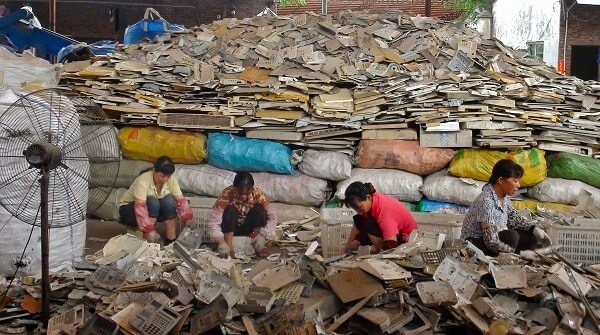Sometime ago, when news surfaced about how Australia is worried about China refusing to accept its recyclable waste materials, I wondered why that would be an issue. I realised later that “most” of the waste materials that I happily deposit in my recycle bin are being transported to China to be recycled into different material that eventually may or may not come back to our local markets.
As much as it surprised me, it confused me as well. I never knew that our recyclable rubbish goes on a trip to China!

Dr Avanish Pannikar, a Sydney-based Senior Waste and Wastewater Engineer enlightened me on the subject. “Yes, your recyclable waste goes on a journey of its own,” he confirmed. “It is not actually ‘wasted’ in the literal sense of the word, but is a valuable resource. The stuff you put in your household bin and roll out to the street on bin night, gets transported to the sorting yard by the waste-trucks. There recyclable materials like plastic, metal, glass, paper, cardboard and textile get categorised and sub-categorised. For example, metals are sorted into different types such as iron, aluminium, tin, etc. These sorted waste materials make their way to Chinese processing units to be further categorised. They will then be manufactured into new materials.”
But why don’t we process it all here in Australia?
“Primarily because we don’t have the resources to process our waste here in Australia,” replied Pannikar. “So we cannot make use of the sorted waste. On the other hand, recyclable waste is raw material for China to create new products.”

So why did China stop accepting waste from Australia? I remember reading that it is the contamination of the waste that triggered China to ban the process. “That is correct. The best examples are our pizza boxes. Nobody knew that these should not be put in the recyclable bin. Apparently, the pizza scraps add to the work load of the employees in the processing units in China, to remove the food waste and then process it. As far as they are concerned, they need to invest extra time and human/ mechanical resources into re-sorting the already sorted waste. Also, because of this contamination, they are not able to fully reprocess the resources they procure.”
And here I thought chucking a pizza box into a recyclable waste bin was the easiest thing. In fact, the thing that impressed me most when I migrated to Australia was the presence of two bins in front of our homes – one for non-recyclable food waste and another for recyclable waste. Alas, here the best of my impressions were proven wrong, as it slowly becomes obvious that Australia does not have a national waste policy, and we cannot afford to process our own waste when another country says no to it.
What’s worse, we can’t even send these recyclable materials to the landfills, because as Pannikar says, “These materials are then wasted resources. Secondly, some plastic waste materials will consolidate and as an outcome, the land will weigh down. Plastics like styrofoam will cause reduction in space as well; to mention a few problems.”

What does the country see as a resolution? An estimated increase of effective cost to councils are 400 and 500 per cent – which sounds scary. This is when different state governments start contemplating ideas to bear this cost. Like a landfill levy in Victoria which will make it the last option for households to send their waste into landfills. Or the proposed waste levies in Queensland, which will help to recover the waste management cost for local councils.
Interesting initiatives are also being introduced, like ‘Face Your Waste’ in Perth, where clear wheelie bins are supplied by councils to make people aware of how much they waste. Yet another option is a $465.7mn ‘Waste Less Recycle More’ project rolled out by NSW EPA, targeted at transforming waste and recycling in the state. “Instead of seeing the rejected recyclable waste as an increased burden, maybe we should see potential in this predicament,” Panikkar offered. “Why not see this as an opportunity to develop some waste processing units, and therefore create more employment?”
He makes a pertinent point. But where does it all start? At home, of course. Perhaps it’s time we religiously follow the reduce-reuse-recycle process. It’s quite clear that our planet cannot take more than a certain amount of ‘waste’ we humans create. No doubt, there are initiatives aplenty to help create awareness about waste. But the question is: how many of us are ‘waste-aware’? That’s probably where the conversations should begin.
Rubbishing our waste
With China banning Australia’s recyclable waste, it’s time to ask the question: shouldn’t we be responsible for our own waste?

Reading Time: 4 minutes


